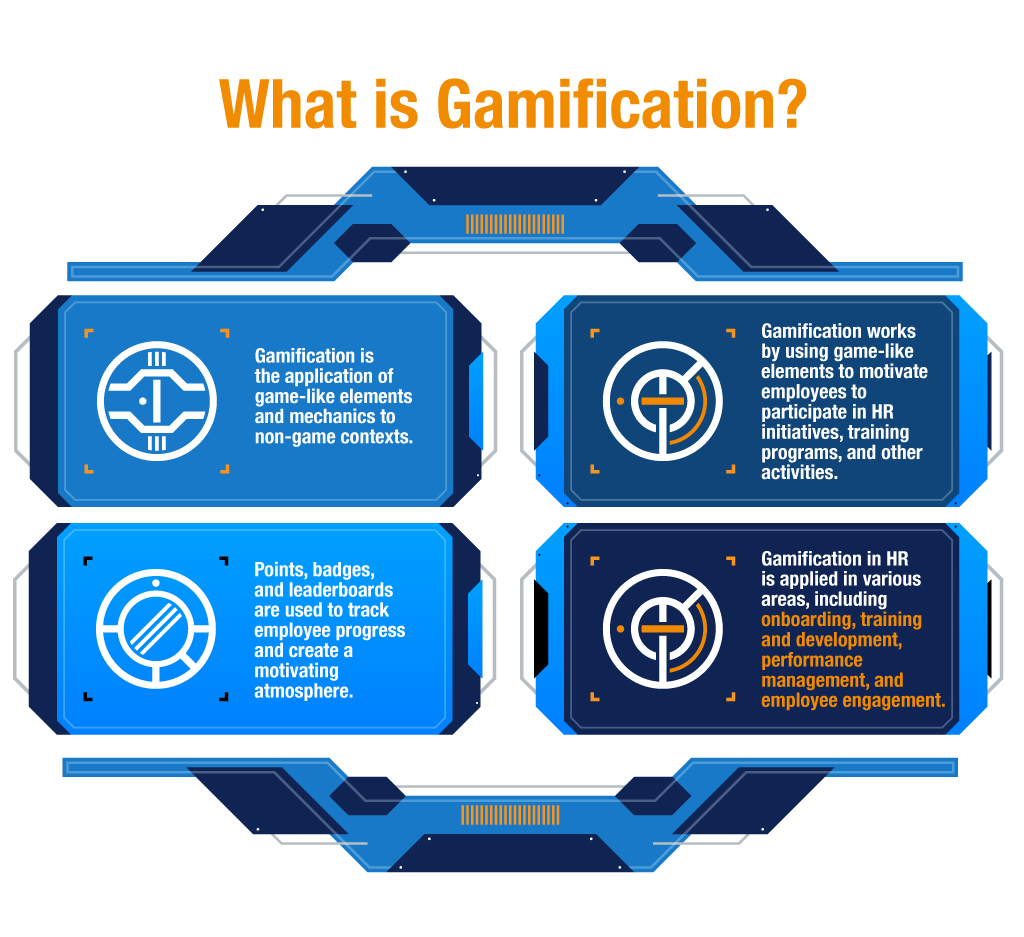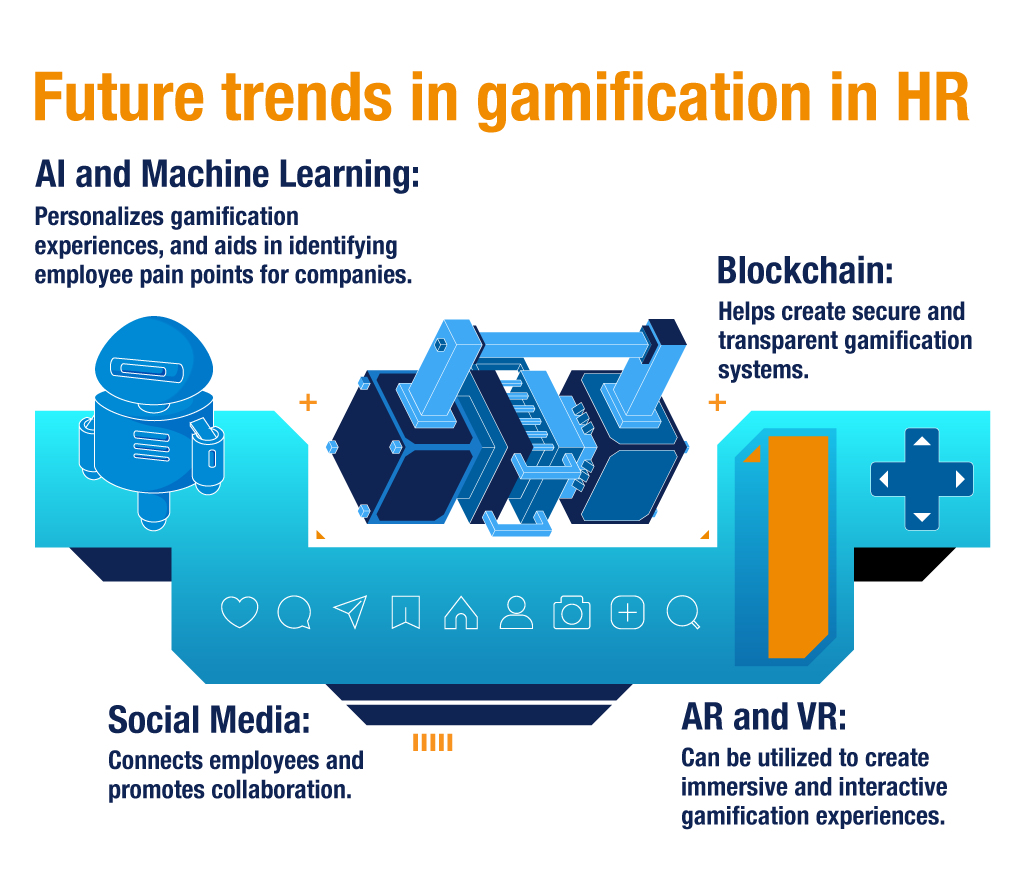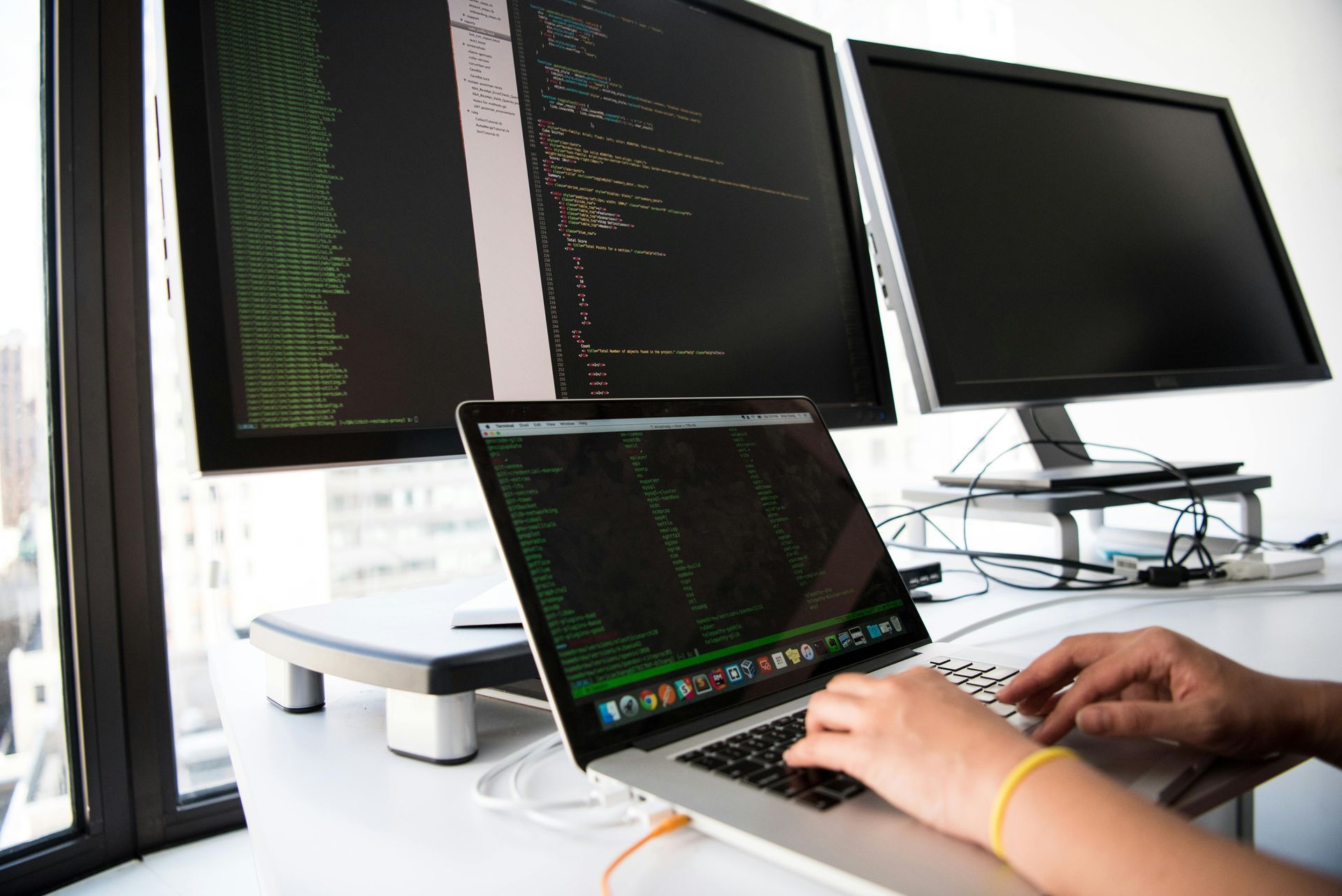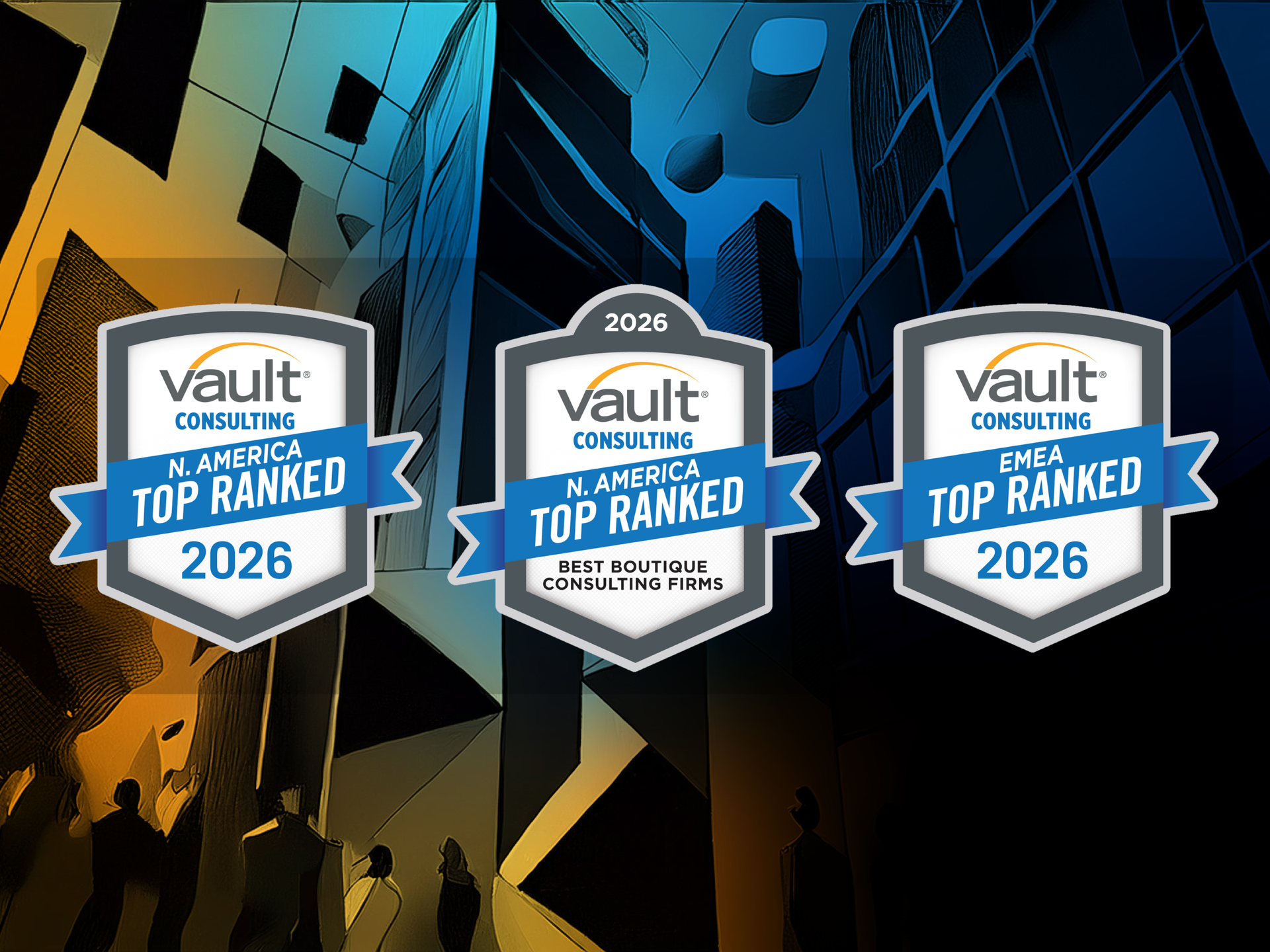Share
What is gamification?
Gamification in HR is a rapidly growing trend that harnesses game design elements and mechanics to enhance employee engagement, productivity, and performance in today's dynamic work environment. By integrating game-like features in HR processes, organizations create a more engaging and motivating atmosphere.
This approach involves using points, badges, and leaderboards to track employee progress, offering rewards for task completion, and implementing challenges and competitions. Gamification in HR encompasses various aspects such as learning and development, performance management, recruitment and onboarding, and team collaboration, all of which contribute to a more cohesive and successful organization.
By gamifying HR systems with points and badges, employees will be able to incentivize, reward, and recognize individuals in today’s remote work environment:
Use of Data Analysis on gamification in HR
Data analytics is crucial for optimizing gamification in HR, allowing organizations to make data-driven decisions and continuously refine their strategies for increased employee engagement and improved performance. Here is a breakdown of how data analytics can be specifically utilized within the context of HR gamification:
Performance tracking
Track and analyze employee performance data within gamified HR processes. It enables organizations to measure progress, identify trends, and assess the impact of gamification on performance metrics. This data helps HR teams make informed decisions about the effectiveness of gamification elements and adjust as needed.
Engagement Metrics
Provide insights into employee engagement levels within gamified HR initiatives. By analyzing data such as participation rates, completion rates, and time spent on gamified activities, organizations can gauge the effectiveness of gamification in capturing employee interest and motivating their involvement.
Progress monitoring
Gamification in HR often involves tracking individual or team progress through levels, badges, or points. Data analytics can collect and analyze this progress data to identify areas of improvement, recognize high-performing employees, and provide targeted feedback for personalized development.
Leaderboards and competitions
Data analytics can track and display leaderboard rankings and competition outcomes. This data helps HR teams identify top performers, foster healthy competition, and provide rewards and recognition for achieving specific goals or milestones.
Multi-Faceted Benefits of Gamification

Gamification in HR offers several benefits that can positively impact the organization and its employees. Here are some key advantages:
Increased Employee Engagement
Gamification makes work more enjoyable and interactive, leading to higher levels of employee engagement. By incorporating game-like elements such as points, badges, and leaderboards, employees can be motivated to actively participate in HR initiatives, training programs, and other activities.
Improved Learning and Development
Gamification can enhance learning and development initiatives by providing a more immersive and interactive experience. By integrating game mechanics into training programs, employees are motivated to actively participate, retain information better, and apply their knowledge effectively.
Enhanced Performance Management
Gamified performance management systems provide a structured and engaging way for employees to track their progress, set goals, and receive rewards for achieving targets. It promotes transparency, provides instant feedback, and increases motivation to improve performance.
Recognition and Rewards
Gamification allows HR to recognize and reward employees for their achievements, both big and small. By providing tangible rewards, such as badges, points, or virtual currency, HR can acknowledge employees' efforts, boosting morale, and creating a sense of accomplishment.
Future Trends in Gamification in HR

Overall, the future of gamification in HR is bright. Gamification is a powerful tool that can be used to improve employee engagement, productivity, and retention. The use of AI, ML, blockchain, AR, VR, and social media will help to make gamification even more effective and engaging in the future.
Private Equity Firms Drawn to the Promising Gamification in HR
Promising gamification within HR is attracting private equity firms seeking growth and returns. With the market projected to reach $35.8B by 2025 and experiencing rapid adoption across industries, the potential for expansion is significant. Businesses' increasing demand for gamification solutions to enhance employee engagement, productivity, and retention further fuels the interest. Successful gamification companies that have demonstrated positive outcomes become attractive investment targets for private equity. Additionally, the relatively new nature of the gamification market provides an opportunity for private equity to invest in early-stage companies, supporting their growth and scalability. Overall, the combination of market growth, demand, success stories, and growth potential solidifies gamification in the HR space as an appealing choice for private equity investment.






